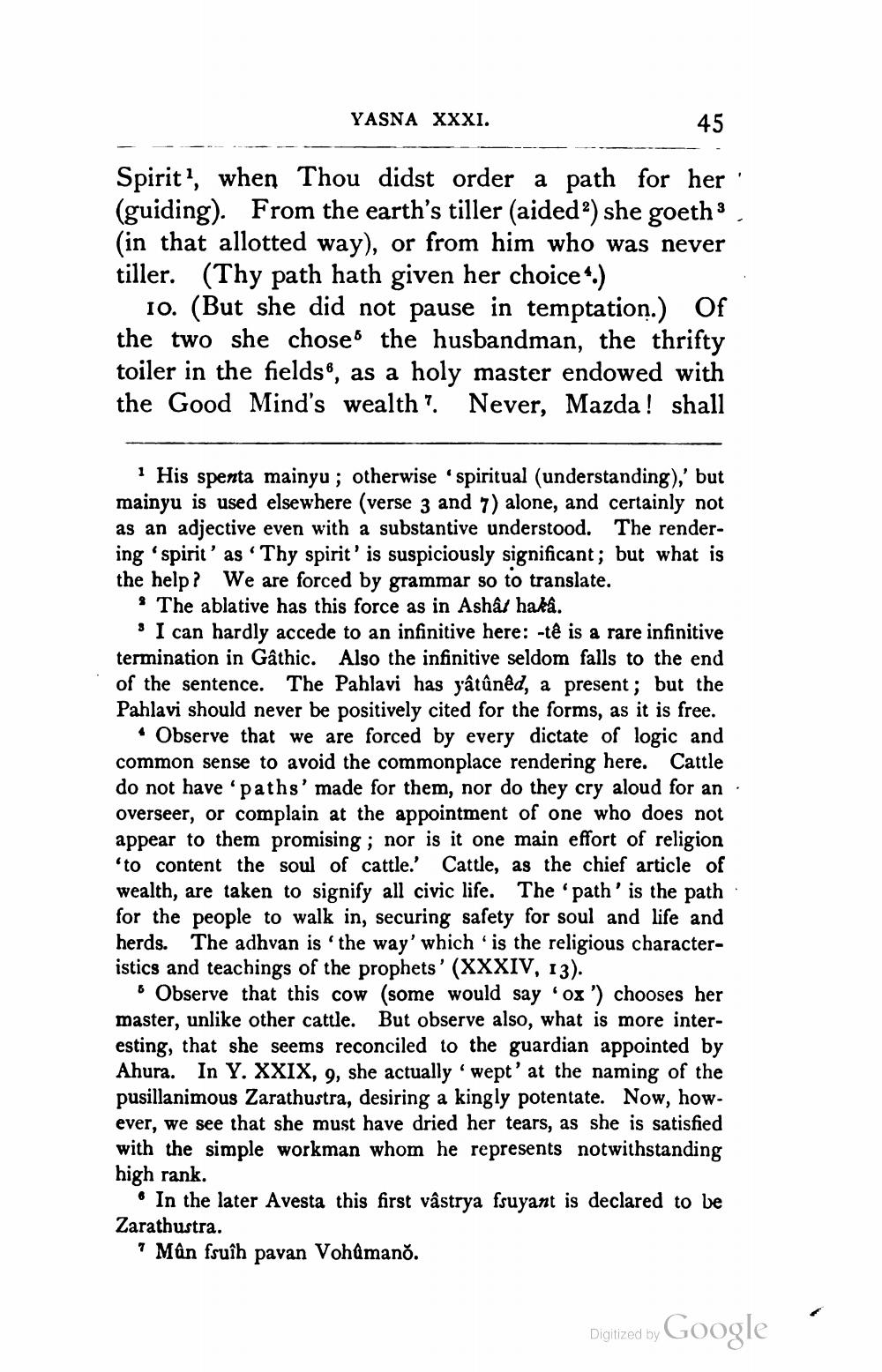________________
YASNA XXXI.
45
Spirit, when Thou didst order a path for her (guiding). From the earth’s tiller (aideda) she goeth (in that allotted way), or from him who was never tiller. (Thy path hath given her choice.)
10. (But she did not pause in temptation.) Of the two she chose the husbandman, the thrifty toiler in the fields, as a holy master endowed with the Good Mind's wealth? Never, Mazda! shall
1 His spenta mainyu ; otherwise spiritual (understanding),' but mainyu is used elsewhere (verse 3 and 7) alone, and certainly not as an adjective even with a substantive understood. The rendering spirit' as 'Thy spirit' is suspiciously significant; but what is the help? We are forced by grammar so to translate.
* The ablative has this force as in Ashâ/ haka.
3 I can hardly accede to an infinitive here: -tê is a rare infinitive termination in Gâthic. Also the infinitive seldom falls to the end of the sentence. The Pahlavi has yâtûned, a present; but the Pahlavi should never be positively cited for the forms, as it is free.
• Observe that we are forced by every dictate of logic and common sense to avoid the commonplace rendering here. Cattle do not have 'paths' made for them, nor do they cry aloud for an overseer, or complain at the appointment of one who does not appear to them promising ; nor is it one main effort of religion 'to content the soul of cattle.' Cattle, as the chief article of wealth, are taken to signify all civic life. The 'path' is the path for the people to walk in, securing safety for soul and life and herds. The adhvan is the way' which is the religious characteristics and teachings of the prophets' (XXXIV, 13).
6 Observe that this cow (some would say 'ox') chooses her master, unlike other cattle. But observe also, what is more interesting, that she seems reconciled to the guardian appointed by Ahura. In Y. XXIX, 9, she actually 'wept' at the naming of the pusillanimous Zarathustra, desiring a kingly potentate. Now, however, we see that she must have dried her tears, as she is satisfied with the simple workman whom he represents notwithstanding high rank.
• In the later Avesta this first vâstrya fsuyant is declared to be Zarathustra.
" Mân fruih pavan Vohamanõ.
Digitized by
Digitized by Google




